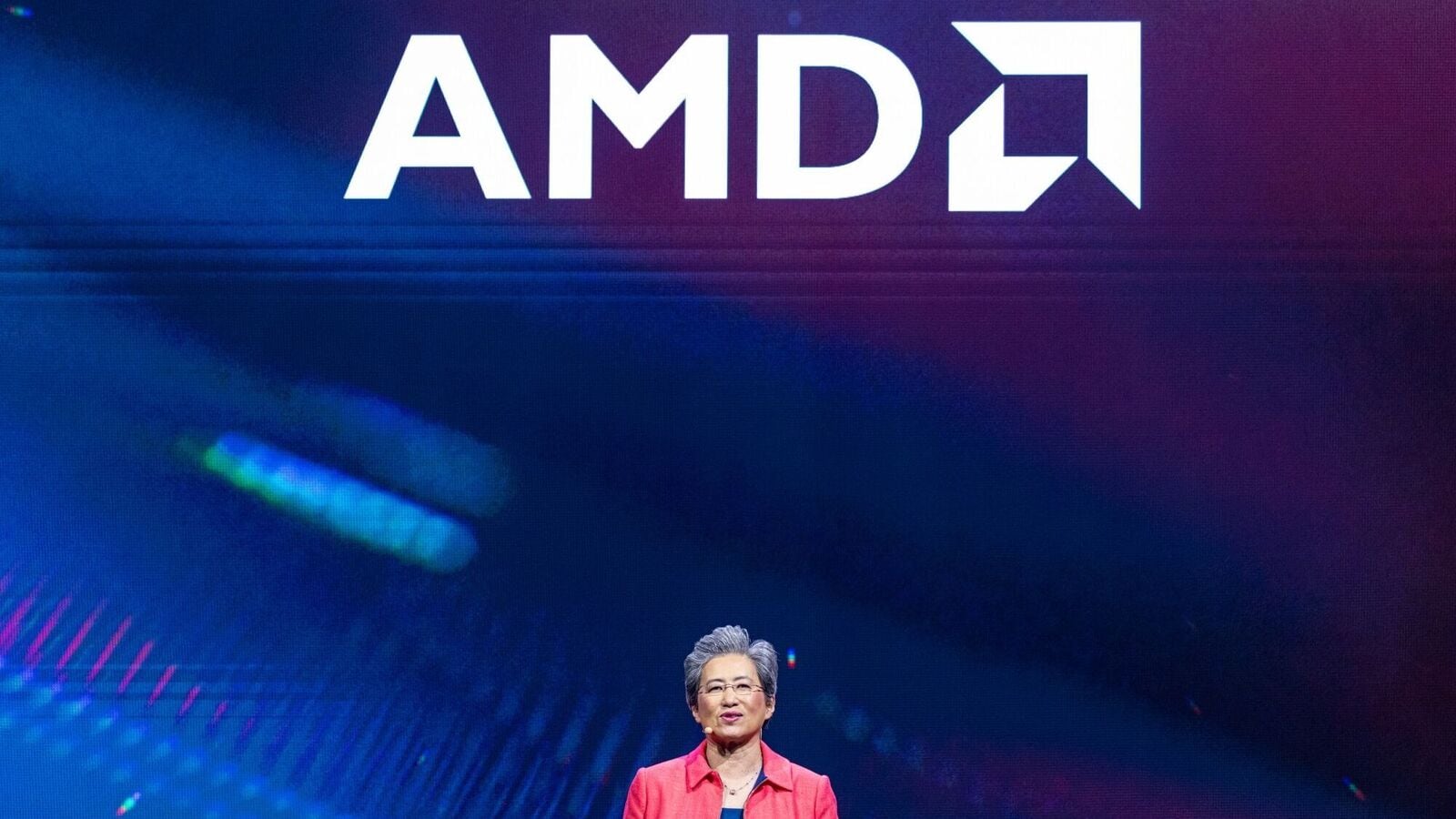
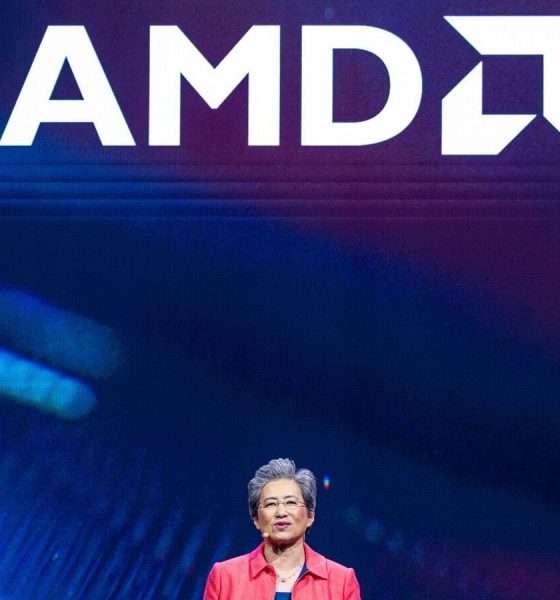
Metaverse
AMD’s Helios Server launch signals bold challenge to Nvidia’s AI supremacy, backed by OpenAI and Crusoe – Crypto News
Advanced Micro Devices (AMD) has revealed its next major push into artificial intelligence hardware, unveiling a new AI server platform calledHelios, designed to challenge Nvidia’s dominance in the sector. Speaking at the company’s “Advancing AI” developer conference, CEO Lisa Su outlined AMD’s roadmap through 2026, including the launch of the MI350 and upcoming MI400 series AI chips.
The Helios servers, set for release next year, will be powered by 72 of the MI400 chips, placing them in direct competition with Nvidia’s NVL72 servers built around the Blackwell architecture. Crucially, AMD announced that core elements of the Helios system, including networking standards, would be made openly available, a sharp contrast to Nvidia’s historically closed NVLink technology, which has only recently begun to be licensed out under industry pressure.
Su stated, “The future of AI is not going to be built by any one company or in a closed ecosystem. It’s going to be shaped by open collaboration across the industry.”
In a significant endorsement, OpenAI CEO Sam Altman joined Su onstage and confirmed the company is working closely with AMD on the development of the MI450 chip series, helping tailor the design for large-scale AI workloads. Altman reflected on OpenAI’s exponential infrastructure growth, calling it“a crazy, crazy thing to watch.”
Executives from Meta, Oracle, xAI, and AI-focused cloud provider Crusoe also took part in the keynote, with Crusoe revealing plans to purchase $400 million worth of AMD chips, a vote of confidence in the company’s renewed AI ambitions.
Despite the fanfare, AMD shares dipped 2.2 per cent following the announcement. Analysts like Kinngai Chan of Summit Insights suggested the new chips are unlikely to dramatically shift AMD’s current market position in the near term, given Nvidia’s strong lead in both hardware and supporting software ecosystems.
To address these gaps, AMD has made a series of acquisitions aimed at bolstering its AI software capabilities and server infrastructure. The firm acquired server manufacturer ZT Systems in March and recently brought on talent from Untether AI and generative AI startup Lamini. Over the past year, AMD has made 25 strategic investments to accelerate its AI agenda.
Nonetheless, AMD’s ROCm software platform still trails Nvidia’s CUDA in terms of developer adoption and ecosystem maturity. CUDA remains a cornerstone of Nvidia’s AI stronghold, widely regarded as a key factor in its dominance.
AMD, headquartered in Santa Clara, California, continues to forecast strong double-digit growth in its AI chip segment for the coming year, even as export restrictions on high-end chips to China intensify.
(With inputs from Reuters)
-

 Blockchain1 week ago
Blockchain1 week agoAfrica Countries Pass Crypto Laws to Attract Industry – Crypto News
-
Cryptocurrency1 week ago
XRP News: Ripple Unveils ‘Ripple Prime’ After Closing $1.25B Hidden Road Deal – Crypto News
-

 Cryptocurrency1 week ago
Cryptocurrency1 week agoDOGE to $0.33 in Sight? Dogecoin Must Defend This Key Level First – Crypto News
-
others1 week ago
JPY soft and underperforming G10 in quiet trade – Scotiabank – Crypto News
-

 Blockchain1 week ago
Blockchain1 week agoXRP Price Gains Traction — Buyers Pile In Ahead Of Key Technical Breakout – Crypto News
-

 Blockchain1 week ago
Blockchain1 week agoISM Data Hints Bitcoin Cycle Could Last Longer Than Usual – Crypto News
-

 Cryptocurrency1 week ago
Cryptocurrency1 week agoWhat next for Avantis price after the 73% recovery? – Crypto News
-

 Technology1 week ago
Technology1 week agoNothing OS 4.0 Beta introduces pre-installed apps to Phone (3a) series: Co-founder Akis Evangelidis explains the update – Crypto News
-

 Technology5 days ago
Technology5 days agoSam Altman says OpenAI is developing a ‘legitimate AI researcher’ by 2028 that can discover new science on its own – Crypto News
-

 Cryptocurrency1 week ago
Cryptocurrency1 week agoTrump plans to pick Michael Selig to lead CFTC: Report – Crypto News
-

 Blockchain1 week ago
Blockchain1 week agoEthereum Rebounds From Bull Market Support: Can It Conquer The ‘Golden Pocket’ Next? – Crypto News
-

 De-fi1 week ago
De-fi1 week agoNearly Half of US Retail Crypto Holders Haven’t Earned Yield: MoreMarkets – Crypto News
-

 Cryptocurrency1 week ago
Cryptocurrency1 week agoBitcoin’s institutional surge widens trillion-dollar gap with altcoins – Crypto News
-

 Technology1 week ago
Technology1 week agoUniswap Foundation (UNI) awards Brevis $9M grant to accelerate V4 adoption – Crypto News
-

 Blockchain1 week ago
Blockchain1 week agoBinance Stablecoin Outflow On A Steady Rise — What This Means For The Market – Crypto News
-
others1 week ago
Indian Court Declares XRP as Property in WazirX Hack Case – Crypto News
-

 Cryptocurrency1 week ago
Cryptocurrency1 week agoWestern Union eyes stablecoin rails in pursuit of a ‘super app’ vision – Crypto News
-

 Technology1 week ago
Technology1 week agoFrom Studio smoke to golden hour: How to create stunning AI portraits with Google Gemini – 16 viral prompts – Crypto News
-
Business1 week ago
PEPE Coin Price Prediction as Weekly Outflows Hit $17M – Is Rebound Ahead? – Crypto News
-

 Cryptocurrency1 week ago
Cryptocurrency1 week agoHYPE Breaks Out After Robinhood Listing and S-1 Filing: What’s Next? – Crypto News
-

 De-fi1 week ago
De-fi1 week agoHYPE Jumps 10% as Robinhood Announces Spot Listing – Crypto News
-
others1 week ago
Platinum price recovers from setback – Commerzbank – Crypto News
-
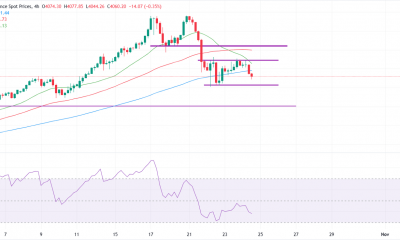
 others1 week ago
others1 week agoGold trims losses after softer US inflation reinforces dovish Fed outlook – Crypto News
-
Business1 week ago
White House Crypto Czar Backs Michael Selig as ‘Excellent Choice’ To Lead CFTC – Crypto News
-
others1 week ago
Bitcoin Price Eyes $120K Ahead of FED’s 98.3% Likelihood to Cut Rates – Crypto News
-

 Technology1 week ago
Technology1 week agoMint Explainer | India’s draft AI rules and how they could affect creators, social media platforms – Crypto News
-
others1 week ago
GBP/USD holds steady after UK data, US inflation fuels rate cut bets – Crypto News
-

 Blockchain1 week ago
Blockchain1 week agoXRP/BTC Retests 6-Year Breakout Trendline, Analyst Calls For Decoupling – Crypto News
-

 Cryptocurrency1 week ago
Cryptocurrency1 week agoUSDJPY Forecast: The Dollar’s Winning Streak Why New Highs Could Be At Hand – Crypto News
-
others1 week ago
Is Changpeng “CZ” Zhao Returning To Binance? Probably Not – Crypto News
-

 Cryptocurrency1 week ago
Cryptocurrency1 week agoFetch.ai and Ocean Protocol move toward resolving $120M FET dispute – Crypto News
-
Technology1 week ago
Can Hype Price Hit $50 After Robinhood Listing? – Crypto News
-

 Technology1 week ago
Technology1 week agoOpenAI announces major Sora update: Editing, trending cameos, and Android launch on the way – Crypto News
-

 Metaverse1 week ago
Metaverse1 week agoGemini in Gmail automates meeting schedules effortlessly – Crypto News
-

 Blockchain1 week ago
Blockchain1 week agoEntire Startup Lifecycle to Move Onchain – Crypto News
-

 Cryptocurrency1 week ago
Cryptocurrency1 week agoNEAR’s inflation reduction vote fails pass threshold, but it may still be implemented – Crypto News
-

 Technology1 week ago
Technology1 week agoSurvival instinct? New study says some leading AI models won’t let themselves be shut down – Crypto News
-
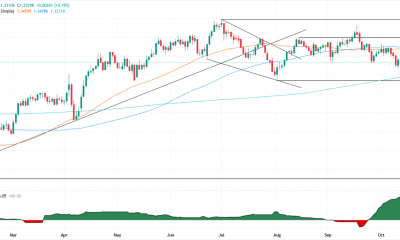
 others7 days ago
others7 days agoGBP/USD floats around 1.3320 as softer US CPI reinforces Fed cut bets – Crypto News
-

 Cryptocurrency5 days ago
Cryptocurrency5 days agoCitigroup and Coinbase partner to expand digital-asset payment capabilities – Crypto News
-

 Cryptocurrency5 days ago
Cryptocurrency5 days agoInside Bitwise’s milestone solana ETF launch – Crypto News
-
others1 week ago
Silver consolidates below $49 amid Fed rate-cut bets – Crypto News
-
Business1 week ago
HBAR Price Targets 50% Jump as Hedera Unleashes Massive Staking Move – Crypto News
-
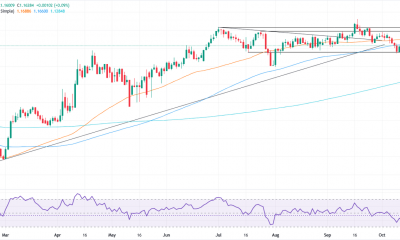
 others1 week ago
others1 week agoEUR/USD hovers at 1.1600 as muted CPI data fails to alter Fed stance – Crypto News
-
Business1 week ago
Trump Picks SEC Crypto Counsel Michael Selig to Lead CFTC Amid Crypto Oversight Push – Crypto News
-

 Blockchain1 week ago
Blockchain1 week agoPump.Fun Rallies 10% After Acquisition Of Trading Terminal Padre – Crypto News
-
Technology1 week ago
Analyst Eyes Key Support Retest Before a Rebound for Ethereum Price Amid $93M ETF Outflows and BlackRock Dump – Crypto News
-
Business1 week ago
Ripple Explores New XRP Use Cases as Brad Garlinghouse Reaffirms Token’s ‘Central’ Role – Crypto News
-
others1 week ago
Tether’s Stablecoin 1.0 Era Is Over – Now the Industry Needs 2.0 – Crypto News
-

 De-fi1 week ago
De-fi1 week agoAave Labs Acquires Stable Finance to Expand DeFi Access – Crypto News
-

 Blockchain1 week ago
Blockchain1 week agoKyrgyzstan Launches Stablecoin While Confirming Future CBDC – Crypto News










